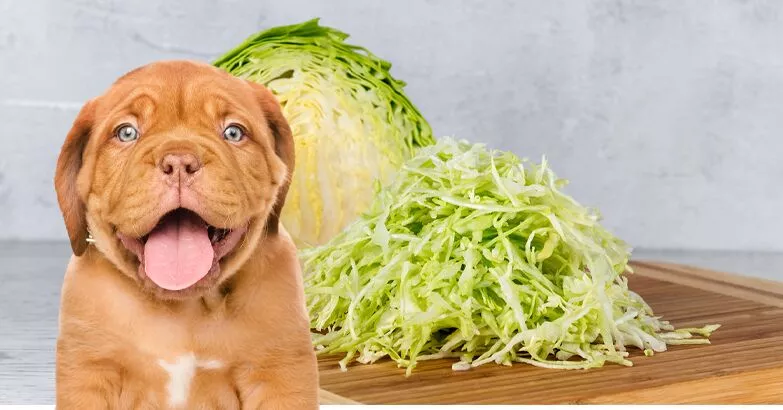
It’s a common question for pet owners: can dogs eat cabbage?
You may be surprised to learn that this vegetable has some nutritional benefits for your pup. However, it’s important to understand the potential risks and best ways to feed cabbage before adding it into your dog’s diet.
In this article, you’ll learn all you need to know about feeding cabbage to your pup, as well as alternatives if you decide against serving up this leafy green.
What are the Nutritional Benefits of Cabbage for Dogs?
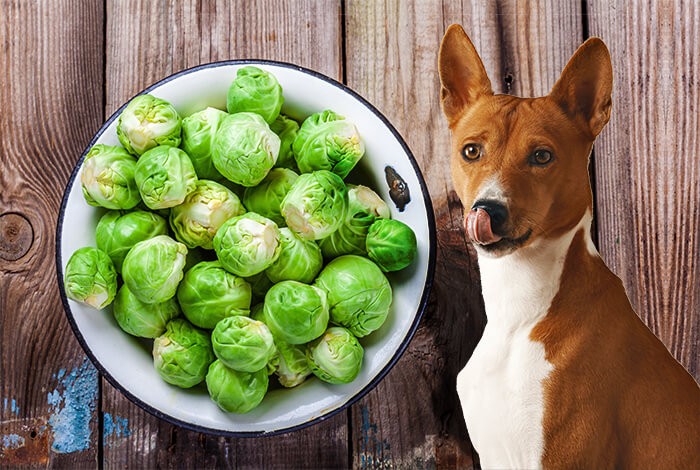
Cabbage is a great addition to your pup’s diet, packed with amazing nutrients that can benefit their health! There are many potential benefits of cabbage for dogs, as it’s full of vitamins and minerals such as Vitamin K, C, and B6.
It also has dietary fiber which helps digestion and can help regulate blood sugar levels.
Cabbage is also low in calories yet high in water content, so it makes a great snack for those watching their pup’s weight or providing them with extra hydration.
The dietary needs of all dogs vary depending on breed and age, but cabbage can provide essential nutrients for any pet.
Are There any Risks Associated with Feeding Cabbage to Dogs?
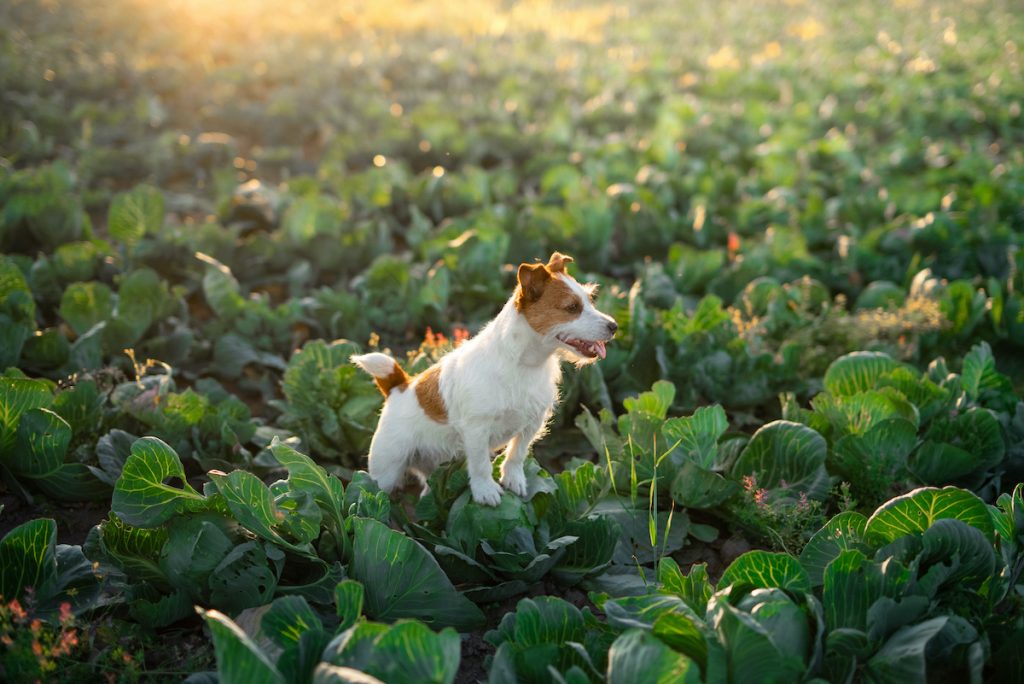
Feeding Fido cabbage could pose some risks to his health, so it’s important to be aware of the possible dangers.
Cabbage is generally considered safe for dogs in moderate amounts, however, consuming too much can cause digestive issues such as diarrhea and vomiting.
Additionally, certain components found in cabbage can have toxic effects on dogs, particularly if eaten in large quantities.
For example, the leaves of a cabbage plant contain substances called goitrogens which can interfere with the production of thyroid hormones and lead to hypothyroidism in dogs.
Therefore, it’s important to consult with your veterinarian before introducing cabbage into your dog’s diet.
What are the Best Ways to Feed Cabbage to Dogs?
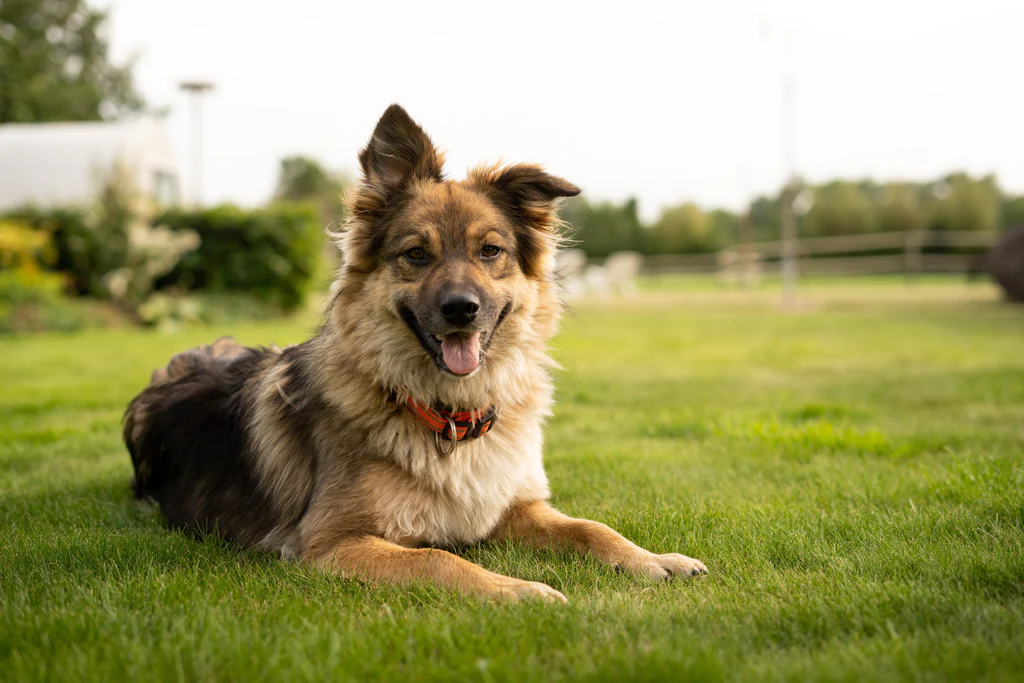
When it comes to incorporating cabbage into Fido’s diet, there are a few steps you can take to make sure he enjoys the tasty veggie in a healthy and safe way.
Here are four simple tips for feeding cabbage to your pup:
-
Start with small portion sizes – Too much cabbage all at once can lead to gastrointestinal distress in dogs, so begin slowly by offering only one or two leaves per session.
-
Introduce cooked cabbage first – Cooked cabbage is easier for dogs to digest than raw, so try lightly steaming it before giving it your pup.
-
Mix with other foods – To encourage your dog to enjoy the taste of the cabbage, mix it with some of his favorite ingredients like lean meats or high-quality dry kibble.
-
Keep an eye on his response – It’s important to monitor your pup for any signs of digestive upset after eating the cabbage, such as vomiting or diarrhea. If anything seems amiss, stop feeding it and talk to your vet about alternative feeding methods for Fido’s diet.
By following these easy guidelines when introducing cauliflower into Fido’s diet, you can ensure that he receives all its nutritional benefits while avoiding any potential risks associated with this yummy veggie!
Can Dogs Eat Cabbage? What Alternatives to Cabbage are there for Dogs?
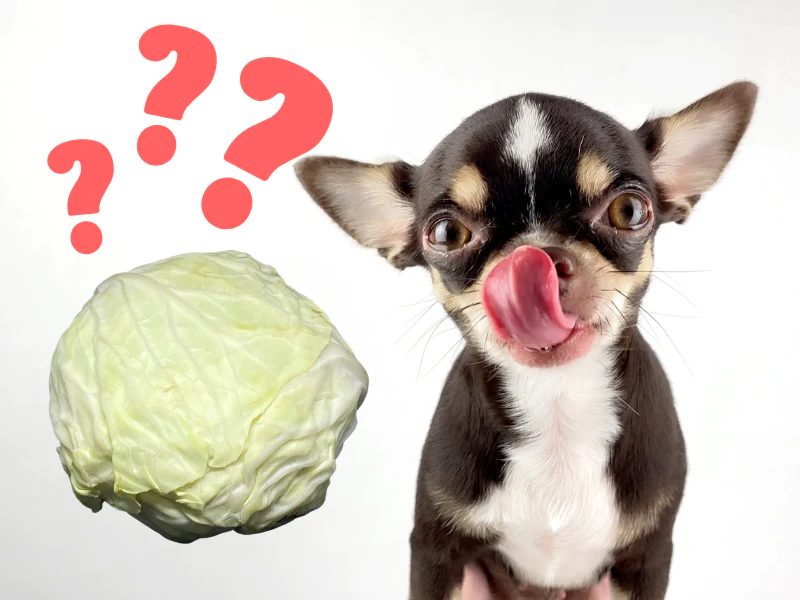
If your pup isn’t a fan of cabbage, don’t worry – there are plenty of other nutritious vegetables that can provide Fido with all the vitamins and minerals he needs!
Raw carrots are an excellent substitute for cabbage as they contain calcium, magnesium, and potassium. They also boast high levels of Vitamin A which is essential for healthy eyesight and strong teeth.
Boiled spinach is another great alternative to cabbage because it’s packed with iron and other vitamins like B6, C, E, K1. It’s also loaded with dietary fiber which helps promote a healthy digestive system in dogs. Plus, spinach contains lutein which helps protect pups from developing cataracts as they age.
So if your pup doesn’t enjoy eating cabbage, you can rest assured knowing there are plenty of other nutritious green vegetables to offer them instead!
When Should You Avoid Feeding Cabbage to Dogs?

It’s important to know when not to offer your pup cabbage, as it can cause gastrointestinal distress if consumed in large quantities.
To avoid digestive issues, you should limit the amount and frequency of feeding your dog cabbage. If you’re unsure, consult a veterinarian for individualized advice tailored to your pup’s specific health needs.
Here are five key things to keep in mind when deciding whether or not to feed cabbage to your pet:
- Cabbage is high in fiber and may be too hard for a dog’s stomach to digest properly; therefore, it shouldn’t be fed too often.
- Cabbage may cause gas and bloating due to its high sulfur content; if this occurs, reduce the amount of cabbage fed.
- As with any new food item, introduce small amounts first until you determine how well it’s tolerated by your pet.
- Pay attention to changes in digestion that might occur after feeding cabbage such as vomiting or diarrhea; if this happens frequently then consider reducing the amount offered or avoiding altogether.
- Monitor closely for signs of an allergic reaction which could include hives, swelling around the face, shortness of breath or excessive scratching/licking at the mouth area – if any of these symptoms appear, seek veterinary advice immediately.
See Also:
-
Can Dogs Eat Peaches? Unveiling the Nourishing Delights – Benefits, Safety, and Precautions
-
Can Dogs Eat Lemons? Unlocking the Remarkable Truth Exploring Safety, Benefits, and Alternatives
-
Can Dogs Eat Squash? Unveiling the Nutritional Benefits and Safety Precautions
Conclusion
You’ve seen that cabbage can be a beneficial addition to your dog’s diet. Its high levels of vitamins and minerals, as well as its low-calorie content make it an ideal food for dogs.
However, there are risks associated with feeding cabbage to your pup, so you’ll want to proceed with caution.
If you do decide to feed cabbage to your dog, make sure you choose the right type and prepare it properly.
Additionally, there are plenty of alternatives that can provide similar nutritional benefits without the same risks.
All in all, feeding your pup cabbage is a decision that should be made carefully and with knowledge of the potential risks involved.
Change a Life Today: Adopt a Loving Companion from Bone Voyage Dog Rescue!
